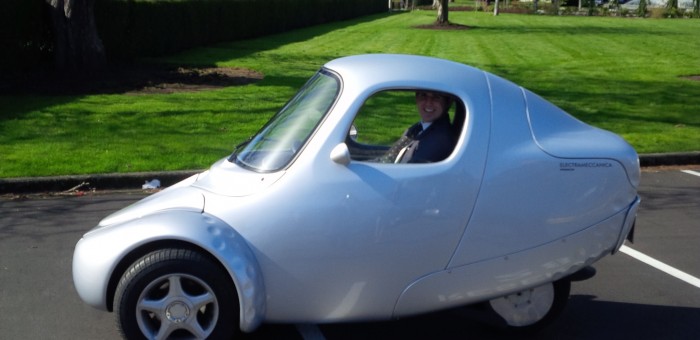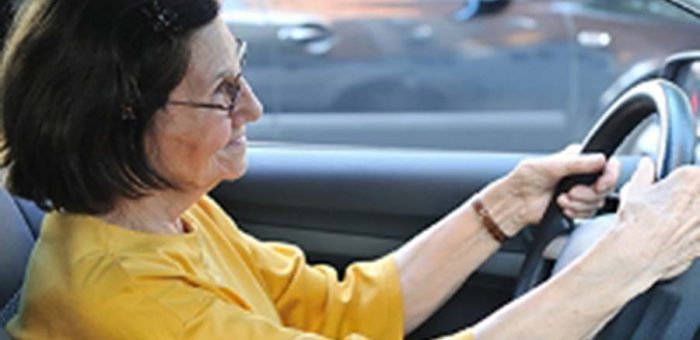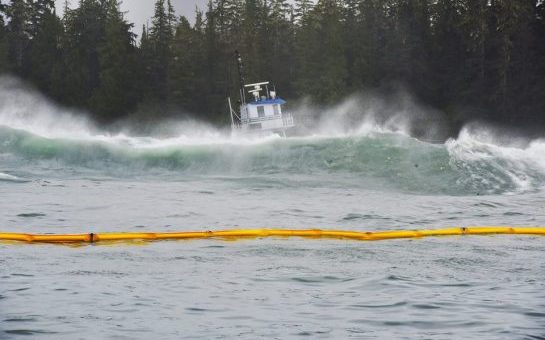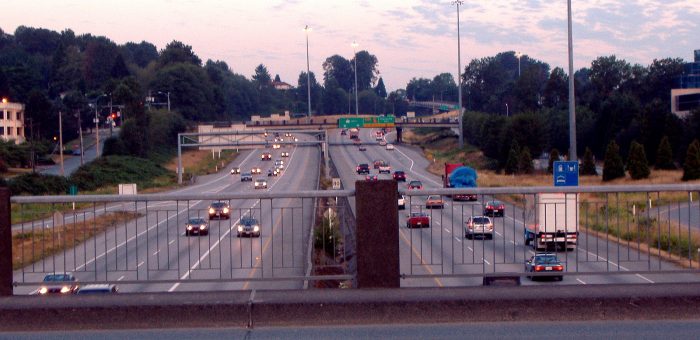Transportation
Statement on Canada’s Electric Vehicle Policy Report Card
Media Release: November 15th, 2016
Weaver Statement on Canada’s Electric Vehicle Policy Report Card
For Immediate Release
Victoria, B.C. – “The B.C. Liberals continue to struggle with embracing the technology of the 21st Century,” said Andrew Weaver, MLA for Oak Bay – Gordon Head and Leader of the B.C. Green Party, in response to the near failing C- grade that B.C. has received on Canada’s Electric Vehicle Policy Report Card. The report was released today by Simon Fraser University’s Sustainable Transportation Action Research Team.
“Jurisdictions around the world are actively embracing the future of transportation and B.C. is getting left behind. We have a wonderful opportunity to get on board as a leader in this sector. I hope that we seize this opportunity instead of resisting our passage into the modern age. The BC Liberal’s uninspired approach to embracing the future is typical of a government that has dragged their feet on ridehailing and significant investment in the tech industry, while championing a return to a fossil-fuel based 20th century economy.”
“Our economy is falling further and further behind the rest of the world. B.C. needs to introduce legislation that mirrors California’s Zero Emission Vehicle Standard Program and start to lead in transportation sectors such as this.”
A Zero Emission Vehicle (ZEV) Standard Program has also been adopted by Quebec and nine US States in addition to California (Connecticut, Maine, Maryland, Massachusetts, New Jersey, New York, Oregon, Rhode Island and Vermont).
Under the ZEV Program, automakers are required to earn a set percentage of zero emission vehicle credits, through selling electric vehicles or buying credits from other automakers who have a surplus. In Quebec, automakers must maintain ZEV credits equal to 3.4% of all sales of 2018 models, rising to 15.5% in 2025. In California, credit requirements are 4.5% in 2018 and 22% in 2025.
“With the Lower Mainland and Southern Vancouver Island geographically constrained, they represent ideal locations for the widespread adoption of zero emission electric vehicles.
“Whether we are leaders or laggards, this is where the world is heading. We ought to capitalize on that.
-30-
Media Contact
Mat Wright – Press Secretary, Andrew Weaver MLA
1 250 216 3382
mat.wright@leg.bc.ca
Background:
SFU’s Sustainable Transportation Action Research Team (START) today released the first ever comprehensive assessment of electric vehicle (EV) policy progress across the country. Canada’s Electric Vehicle Policy Report Card aims to provide provincial leaders with an assessment of whether current and planned EV policies will cut transportation-related greenhouse gas emissions at the scope, scale, and speed needed to prevent dangerous climate change. B.C. scores an underwhelming C-.
Electric Vehicle Use Internationally:
The Indian government has introduced an aggressive incentive program with the goal of having every car on its roads electric by 2030, they aim to be a 100 percent electric vehicle nation. Dutch politicians have voted through a motion calling on the country to ban sales of new petrol and diesel cars starting in 2025, to make their roads gradually electrify over the next decade. In June, Norway’s major parties reached an agreement to ban the sale of new gasoline and diesel powered cars starting in 2025. In October, German legislators of both parties voted to ban the internal combustion engine by 2030.
Troubling response by Minister of Transportation to question on DriveABLE
In an earlier post I explored the process that seniors must go through when a driver turns 80. As I noted, they are required to see their doctor for a Driver’s Medical Examination Report (DMER) every two years. If a doctor raises concerns related to cognitive issues that could interfere with driving abilities, the patient may be instructed to take the DriveABLE examination.
I cannot understand the purpose of the BC Government making seniors jump through the costly DriveABLE hoop when they can ultimately appeal a DriveABLE test failure and ask for an on-road evaluation. It makes no sense to me. It strikes me as for more sensible to just dump the DriveABLE screening and go straight to the on road test. The monies saved in this process could be used to eliminate the DMER cost to seniors.
Yesterday on the Voice of BC, I posed this question directly to Todd Stone, Minister of Transportation:
Question (A.Weaver): A number of seniors in my riding have contacted me over the DriveABLE program and the concerns they have and the stress that they go through when they have to take it. As you know, DriveABLE is a program that only some seniors have to take if directed to by their doctors. If one fails the DriveABLE test, you can still request a road test. It seems to me like this is an unnecessary process that actually wastes a lot of taxpayers’ money — $400 per test, in fact. Do you think we can actually eliminate the DriveABLE requirement in BC? And if not, why not?
Answer (T. Stone): Well look, I know that when the DriveABLE program was brought in it was not a decision taken lightly by government. There was a tremendous amount of concern and opposition expressed at that time. And it certainly is a question that gets posed to me from time to time. Fundamentally we have an obligation to make sure that all motorists are safe motorists. And if a doctor believes – Vaughn, the day will come for you and the day will come for me – that perhaps it’s time to go and be tested to ensure that you’ve got the response time and your eyesight is still good and so forth, I think that’s a good check and balance from a safety perspective, not just for that senior, but for all motorists. That’s a tough one. It’s often the last vestige of independence for people. Somebody losing their licence, that’s a difficult, difficult time for them. But we have to make sure that when you’re out there driving, you’re able to do so safely.
His answer is troubling as it implies that he doesn’t actually know what the DriveABLE test is, or when it is applied. His answer suggests that he is confusing DriveABLE with DMER.
The DMER is taken by all seniors over 80; DriveABLE is only used to examine cognitive skills for a select few. Eye testing is done under DMER not DriveABLE. And the computer based DriveABLE is confusing, stressful and difficult for some seniors who have not grown up in the video game generation.
I would have expected better from the Minister or Transportation. The issue of driver safety is already covered by DMER and the existing option for an on-road evaluation. Based on his response, it is clear to me that costly taxpayer funded DriveABLE program needs to be dumped. I will continue to pressure government to do so.
Bella Bella Spill a Wake up Call on Failed “World Class” Containment
Media Statement: October 24th, 2016
Bella Bella Spill a Wake up Call on Failed “World Class” Containment
For immediate release
Victoria, B.C. – “The provincial and federal government’s ability to respond to spills is nowhere near ‘world class’ — it is not even passingly adequate,” says Andrew Weaver, MLA for Oak Bay – Gordon Head and leader of the B.C. Green Party.
“The diesel spill near Bella Bella, B.C. has been ongoing since the 13th and they can’t even keep a containment boom around the leak. What’s even worse is that a spill response boat responding to the accident also sank. You literally can’t make this stuff up.”
The Heiltsuk Nation Chief Marilyn Slett reported that the containment booms around the sunken tug had failed in the face of continuing storms and waves as high as three metres, and the spill had spread. That was later confirmed by the owner of the sunken tug, Kirby Offshore Marine.
“This is devastating to the Heiltsuk Nation and everyone who lives in the region reliant on the coast for sustenance and income,” says Andrew Weaver “This spill, as well as the bunker oil leak in Vancouver Harbour that closed beaches, demonstrate that it is impossible for the provincial and federal governments to meet all of the five conditions set by the province regarding pipeline expansion.
“The people who live in the Bella Bella region deserve to know how this spill will impact their home and health, and how they will be compensated. They are on the front lines trying to save the clam beds and prevent the damage from spreading. The provincial government needs to step up and take an active stake.
“While the news that marine pilots will now be required on all vessels transporting fuel is welcome, this retroactive response clearly demonstrates spill prevention is not the priority it should be.
-30-
Media Contact
Mat Wright – Press Secretary, Andrew Weaver MLA
mat.wright@leg.bc.ca
250 216 3382
We need to improve stressful and unfair driver testing of seniors
Deciding who is allowed to drive and when a driver should have their license revoked is an incredibly important decision that weighs personal freedom against public safety. It’s a tough job tasked to the B.C. Office of the Superintendent of Motor Vehicles in the Ministry of Justice, who then enlists the assistance of driving programs and medical professionals to carry out assessments that inform their decisions. Some, like the written and driving tests many of us took at 16, introduce British Columbians to the driving world. Others, like the Driver’s Medical Examination Report and DriveABLE, are used to ensure current drivers are continuing to drive safely.
There are 96,000 drivers over the age of 80 in B.C., according to ICBC’s 2014 statistics. While keeping our streets safe is undoubtedly the priority, ensuring that mandatory tests are respectful, fair, and effective is also of utmost importance.
Under the current system, when a driver turns 80 they are required to see their doctor for a Driver’s Medical Examination Report (DMER) every two years. The examination covers a lot of ground from eyesight to cardiovascular health to assessing the severity, progression, and treatment of any medical conditions that could affect the driver’s ability to safely operate a vehicle.
This mandatory examination is not covered by provincial health care and usually costs seniors $197 every two years (the fee recommended by the British Columbia Medical Association), but the bill is left to the clinic’s discretion and has been known to range anywhere from $50 to $500. My office called two clinics in my riding; one in Oak Bay charges $105 and another in Gordon Head charges $125.
I agree with the concerns that the Office of the B.C. Seniors Advocate has raised in the past about the indiscriminate DMER pricing scheme. Given that this is a mandatory test for drivers over the age of 80, and that is must be repeated every two years, I believe the cost should be covered by provincial health care. Seniors who are getting their DMER assessments done regularly are doing their part to ensure our streets stay safe. I do not think that is something they should be financially penalized for.
If a person passes DMER with flying colours, as we always hope they will, they are free to enjoy another two years of safe driving. If the doctor notices a potential problem during the examination, however, it will be reported to RoadSafetyBC. As the agency that oversees driver licensing, RoadSafetyBC will look at the doctor’s report and determine if the patient is going to lose their license or go for additional testing. When the doctor’s concerns relate to cognitive issues that could interfere with driving abilities, the patient may be instructed to take the DriveABLE examination.
Only a small percentage of seniors who go through the DMER process are referred to DriveABLE. A private company based in Alberta developed the DriveABLE program. The company has had a contract with the B.C. government since 2005 and receives roughly $420 from the province every time someone is tested. The test is done on a computer and is 60 to 90 minutes long and can be daunting to seniors with limited computer or video game experience. If the computer assessment is failed, as it often is, drivers can then request an on-road evaluation to demonstrate their safe driving abilities.
So what is the purpose of the BC Government making seniors jump through the costly DriveABLE hoop when they can ultimately appeal a DriveABLE test failure and ask for an on-road evaluation. It makes no sense to me. It strikes me as for more sensible to just dump the DriveABLE screening and go straight to the on road test. The monies saved in this process could be used to eliminate the DMER cost to seniors
When the time comes to see your doctor for a DMER, Steve Wallace, the owner of Wallace Driving School on Vancouver Island and former vice-president of the Driving School Association of the Americas, recommends bringing a record of your driving history. You can get a copy of your driver’s abstract, the driving record for the past five years, free of charge at any ICBC testing facility.
If you have ideas about how the driving assessment process could be improved in B.C. please feel free to contact my constituency association office at (250) 472-8528 or my legislature office by phone at (250) 387-8347, email at Andrew.Weaver.MLA@leg.bc.ca, or mail at Andrew Weaver, Room 027C Parliament Buildings, Victoria BC, V8V 1X4.
Bill M221 — Rideshare Enabling Act, 2016
Today in the legislature I tabled a private member’s bill: Bill M221 — Rideshare Enabling Act, 2016. This bill is intended to start a public dialogue about the rules we need to make ridesharing a reality for British Columbia.
Provinces and cities across Canada and throughout North America have been using ridesharing technology for years. But BC struggles to articulate a vision for promoting innovation in the tech sector. In fact, 22 CEOs and founders from Vancouver’s tech industry recently wrote an open letter to the BC government stating “we are compelled to express our concern regarding the provincial government’s long-standing inaction on ridesharing regulation in B.C. and how we now find ourselves falling behind the rest of the world.”
British Columbians have only heard mixed things from the government on the topic of ridesharing. When the cabinet minister responsible for developing regulations for ridesharing services calls these emerging companies ‘pushy’, it doesn’t set the right tone.”
The BC Green Party will be launching a public survey on their website today that will give British Columbians a chance to take part in a conversation about ridesharing and the evolving creative economy. Results will be published later this spring.
In my view, it’s time the conversation was more transparent and engaged British Columbians about what they want to see happen with these innovative new services. There are numerous voices calling for this government to truly support the emerging tech sector. For some reason, they are having a hard time being heard by this government.
Below are the video and text of the introduction of my bill together with our accompanying media release.
Text of Bill Introduction
A. Weaver: I move that a bill intituled Rideshare Enabling Act, 2016, of which notice has been given in my name, be introduced and read a first time now.
Motion approved.
A. Weaver: I’m pleased to be introducing a bill intituled the Ride-Share Enabling Act, 2016. Ride-sharing is a key component of the new and emerging creative economy in British Columbia. While numerous jurisdictions around the world have passed legislation to allow for the introduction of ride-share technology in their markets, British Columbia is quickly falling behind. In fact, Vancouver is now the largest city in North America without an operating rideshare company such as Lyft or Uber.
Legislation is needed to provide provincial standards that must be followed for any for ride-sharing program to exist in our province. The Ride-Share Enabling Act, 2016, details the process by which a transport network company can operate in British Columbia.
It builds upon best practices in North America to outline the required driver and vehicle records to be provided by ride-share drivers. It further details the required ride-share driver background check and ride-share vehicle inspection and insurance requirements.
In January of this year, 22 CEOs and founders of key B.C.-based tech companies signed and released an open letter. The letter stated:
“We are compelled to express our concern regarding the provincial government’s long-standing inaction on ride-sharing regulation in B.C. and how we now find ourselves falling behind the rest of the world.“
This bill is aimed at ensuring that British Columbians remain at the forefront of innovation in the technology sector.
I move that the bill be placed on the orders of the day for second reading at the next sitting of the House after today.
Bill M221, Ride-Share Enabling Act, 2016, introduced, read a first time and ordered to be placed on orders of the day for second reading at the next sitting of the House after today.
Video of Bill Introductions
Media Release
Media Release: April 11, 2016
Andrew Weaver – Legislation needed for rideshare technology application in BC
For Immediate Release
Victoria B.C. – The Rideshare Enabling Act was introduced today in the BC Legislature by Andrew Weaver, Leader of the B.C. Green Party and MLA for Oak Bay-Gordon Head.
“The sharing economy exists and it’s going to get bigger,” says Weaver. “Rideshare technology is a part of that new economy and we need to create rules so that these industries don’t operate in a vacuum.”
Ridesharing, a driver using their personal vehicle to accept a trip request from a rider using mobile technology, is an international phenomenon with dozens of technology companies participating. Governments around the world and across Canada have embraced ridesharing to increase transportation options, encourage less personal car ownership, reduce impaired driving, create more income opportunities, and facilitate more efficient transportation. To date, over 70 states and cities across the United States and many more around the world have adopted ridesharing regulations.
Today Weaver introduced his private member’s bill with the intention of starting a conversation about what legislation would best meet the needs of British Columbians. This process needs to involve intensive consultation with municipal governments, the BC Taxi Association, and British Columbians across the province.
“Public safety must be a priority as we move forward with ridesharing in this province and to do so we need to legislate certain common standards. We need to ensure that anyone participating as a driver in rideshare technology doesn’t have a criminal record or history of reckless driving. Refusing to discuss the issue is not helping.”
“I’m hopeful the government takes a look at the bill I brought forward and realizes that they need to address this situation soon and cannot continue to keep their heads in the sand. We need smart regulations that don’t create an unfair market.”
Media Contact
Mat Wright – Press Secretary Andrew Weaver MLA
1 250 216 3382
mat.wright@leg.bc.ca







